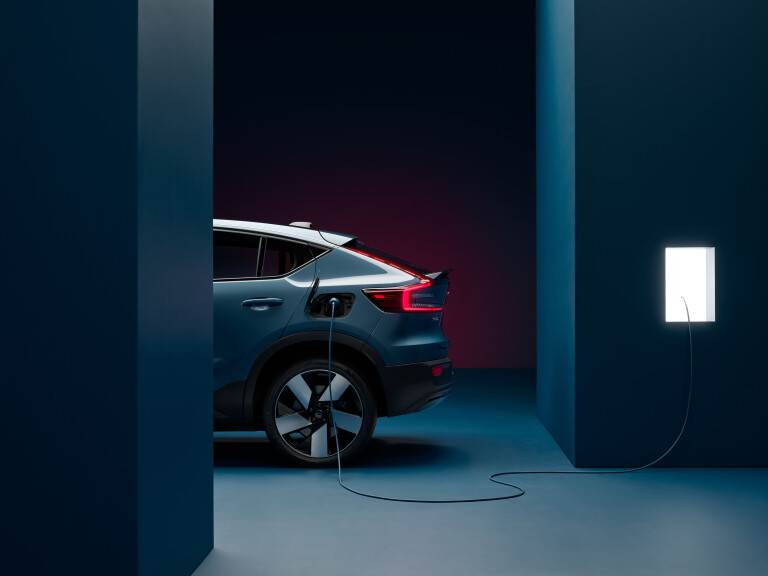
Volvo has announced it is only going to sell fully electric vehicles in Australia by 2026.
Snapshot
- Volvo Australia to be EV-only by 2026. Combustion and hybrid models to be phased out
- New plan puts Australia four years ahead of Volvo’s global strategy
- Volvo admits it will lose sales initially but hopes to grow to 20,000 units by 2026
- Five new electric Volvos coming in the next five years spanning SUVs and a large sedan/wagon
The bold commitment means Volvo will not launch another car Down Under powered by petrol or diesel, with mild-hybrids and plug-in hybrids also set to be phased out under the new plan.
Instead, every new Volvo sold by 2026 will be powered purely by electricity, with the Swedish brand planning to launch five new electric models in Australia over the next five years.
The new EV-only mandate also means Volvo’s Australian arm has one-upped the Swedish brand’s global mandate, which is to be fully electric by 2030 and entirely carbon neutral by 2040.
“Our global strategy is that we will be fully electric by 2030,” said Volvo Australia boss Stephen Connor at the local launch of the Swedish brand’s second EV model, the C40. “The biggest thing that’s come to mind for us is we don’t have to wait for global…
“We’ve agreed on a local level in Australia that we’re not going to wait for 2030. I’ve put a proposal to Gothenburg the other day and we will be fully electric by 2026 in Australia.”
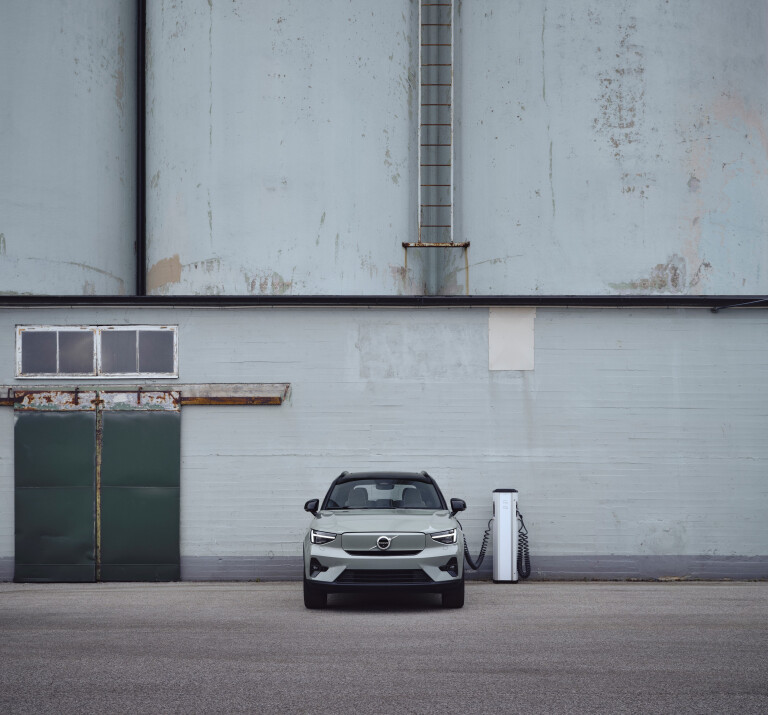
Connor says Volvo Australia sees an opportunity to not only completely eradicate its tailpipe emissions, but to rapidly grow its sales to from 12,500 units annually to 20,000 by capitalising on a sizeable shift in consumer sentiment towards electric cars.
“I actually think the Australian consumer is ready for the change,” he told us. “If you look at the facts, Tesla will sell 20,000 cars this year [in Australia]. I think people want to see the revolution.
“My personal opinion is the market will be crowded by 2030. The acceleration of change is happening so fast that it will actually only get faster. If we wait until 2030, we’ll lose the march on our competitors; I think we’ll lose market share. If we go for 2026, we will gain market share and get the early adopters.”
Making a land grab for buyers in the booming electric segment is a key driver behind Volvo’s strategy and Connor is confident it will catch some of its key rivals napping.
“I’m planning that by 2026 we will sell 20,000 units, have 2 percent market share and be fully electric,” he said. “We’re going to sell 12,500 cars this year, so that growth isn’t huge. What is huge is our current Recharge [electric] share is 30 percent roughly, but we’re going to switch to be full electric. That’s the transition.
“Production and supply will start to improve; within two years the whole world will be back to normal and the ones still tinkering with diesels and the odd ICE car, then I think they’re the manufacturers that will be struggling.”

Already confirmed in Volvo’s EV pipeline is an electric version of the seven-seat XC90, dubbed EX90, which is due to start production next year. A smaller SUV, likely to be called EX30, is also planned, as is a battery-powered large sedan. The final model to make the switch from combustion to pure electric will be the mid-size XC60.
“I’d like to say to you today that it will be by December 2025,” added Connor after he was asked when the full transition to an EV only line-up will be complete. “I’d like to believe we’ll get the supply by 2025 but that’s why we set 2026, because today I’m confident we can do that."
"Even if it’s 2026, that’s still four years ahead of global, and in some instances that’s nine years earlier than some of our competitors. I think some of our competitors will hear this and bring their plans forward, so it’s a race to get there.”
Helping bolster Volvo’s vision is the fact that it’s already enjoying booming sales of its current electric models, the XC40 Recharge and the newly launched C40. Currently, the brand has 1600 backorders for the XC40 Recharge and it’s tipping it will sell 5000 battery-powered models next year, meaning it’s fast approaching the point where it will sell more electric cars than combustion models.
“If we don’t [sell more EVs in 2023], then it will be the following year,” said Connor.
“We’ve ordered 3450 XC40 Recharges and 1550 C40s for 2023. That’s 5000 units, so that’s close to 40 percent of our mix next year. But we’ve asked for more…”
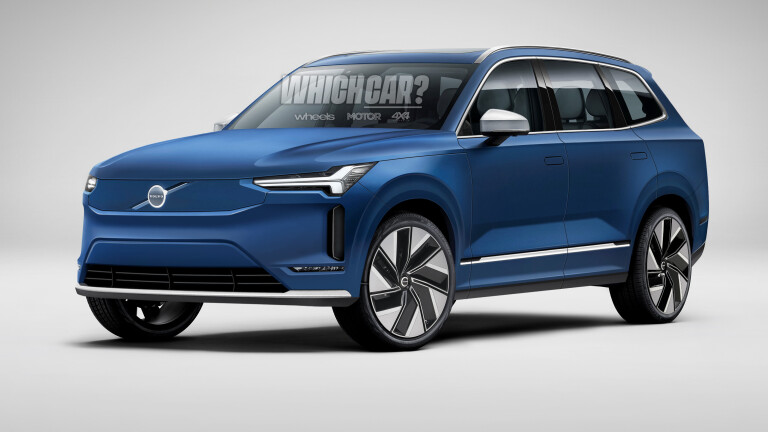
Actually making the switch to an all-electric line-up, however, isn’t as simple as it sounds
Not only will Volvo need to secure strong supply, which is a challenge when global demand for electric models is so high, but it needs to sell the idea to a nationwide dealer group that currently makes a nice living selling combustion cars.
“Coming out with the strategy is one thing but we have to work very hard on the operational implementation,” Connor acknowledged. “Next year we’ll make sure every one of our retailers will have a fast charger which will be free to every customer. We will make sure our customers will also have free coffee so they will have the ability wherever they are to stop off and get charged. And hopefully early next year we’ll announce some other partnerships to help support that.
“What I will say is change is confronting at the best of times. It doesn’t matter who you are or where you’re from. They [the dealers] will experience a level of discomfort because there’s change afoot."
"One day they were great at selling ice cars and diesel cars, now all of a sudden we’re going fully electric. But all we’re doing is bringing it forward by four years so they already knew the deadline was there but again this pace of change is unbelievable.
“But we’re not saying to them that this stops your business model, you have to close your doors. What we’re saying is it’s a new way of working, let’s be bold. There’s still 20 million cars on the road so they’ll still need to service cars – and that will continue for the next 30 years, probably even longer, so there’s still that profit opportunity.”
Despite Connor’s optimism, it’s possible the transition could be a tough sell. Especially as Volvo admits it fully expects it will lose some customers who aren’t ready to make the jump into a pure EV.
Prices are also likely to rise.
Part of Volvo’s product plan is to simplify its model ranges and offer a single, highly-specced variant that leaves customers only two key choices: whether they want one or two electric motors, and which colour to go for.
“Simplicity is really where we’re headed,” said Connor. “As you’ve probably seen with S60 and V60, we went down to one model and that didn’t harm our sales at all. Actually the feedback from consumers is “I love it, now all I have to choose is the colour.” And even then we won’t have 100 colours, we’ll have four or five colours.”
But with Volvo’s current electric models being the most expensive in their respective ranges, moving to EV-only means the price of entry will undoubtedly spike. A combustion-powered XC40, for example, starts at $52,990 – but the more richly equipped XC40 Recharge is priced from $72,990.
“Inevitably, when you come out with a strategy like this, you will lose some customers – but that’s okay, because maybe Volvo isn’t right for them either,” said Connor.
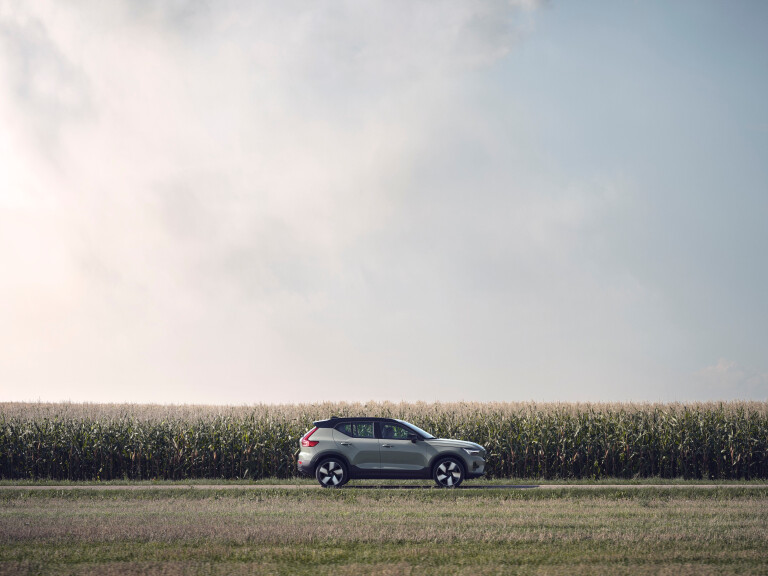
“I don’t want to prove to everyone that Volvo is right for everyone. What I’m saying is for Volvo and Volvo customers, we know today 40 percent of our CO2 emissions come from the tailpipe, so if we do nothing that’s not acceptable either. So actually what we’re doing is we’re turning around and saying ‘by cutting 40 percent of our emissions, we’re actually making a difference to the world’.
“I know that sounds grandiose and it’s not meant to be, but we are making a difference. And when you roll it out to our steel production, 95 percent of our steel work is coming from carbon neutral companies. Then you roll it to our retailers who will be fully carbon neutral as well, so absolutely we’re making a difference.
“So to those customers I’ll say to them “great, there’s still some beautiful brands out there that will absolutely sell you a combustion car, and feel free to do so. For those customers who are more climate neutral orientated, then we’re the brand for them. Everyone is on this journey in different levels.”
So it’s a bold statement of intent from Volvo. Whether it can deliver in a world plagued by rising production costs and shipping delays remains to be seen but Connor is convinced the opportunity is ripe for Volvo to attract customers that may have been considering other brands, including Tesla.
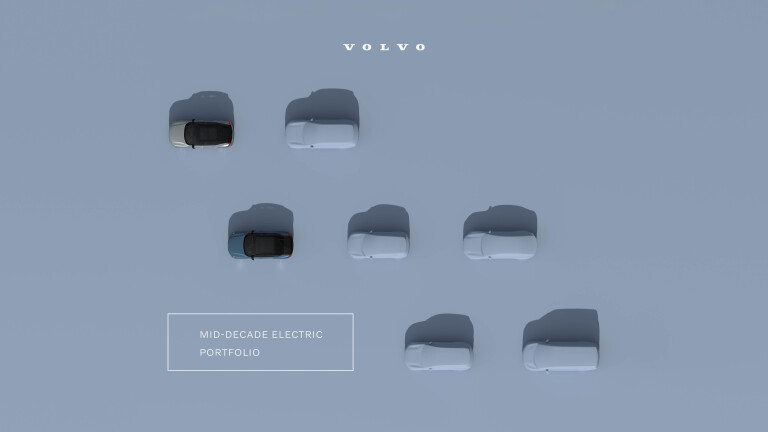
“On a personal level, I love Tesla, because they revolutionised the way we think,” he said.
“They’ve done all the heavy lifting. So why wouldn’t you piggy back off the good work they’ve done? You can’t deny they’ve done a great job. They’ve changed how people think about battery electric and that’s absolutely going to help us.
“So we will actually ride off the back of Tesla. I also think as well, the great thing about Tesla is people bought a Tesla because they were early adopters. Now they’ve adopted, they’ll start to look out and see what else is there and start to migrate to other brands because they weren’t there before. So that’s where we get to steal the march and take the lead.”



COMMENTS